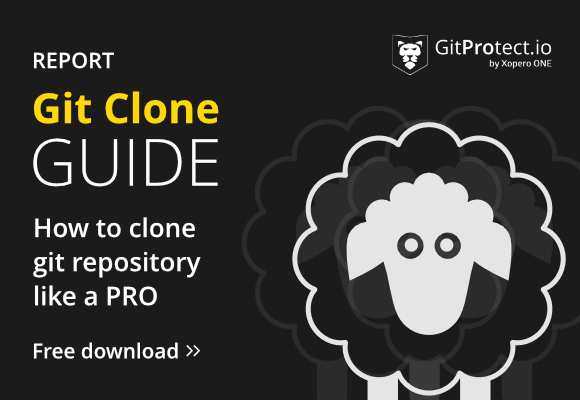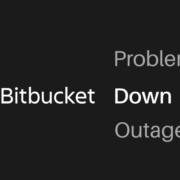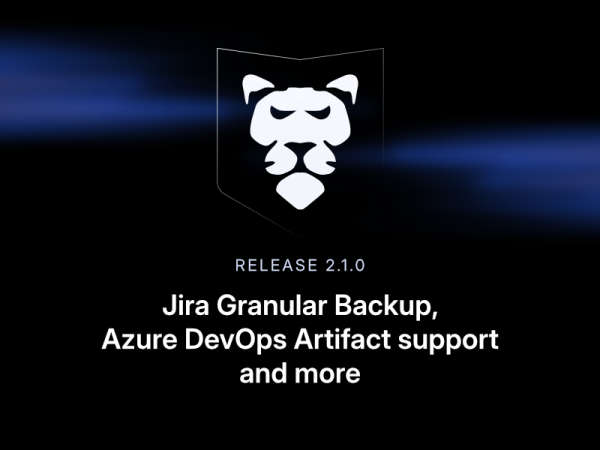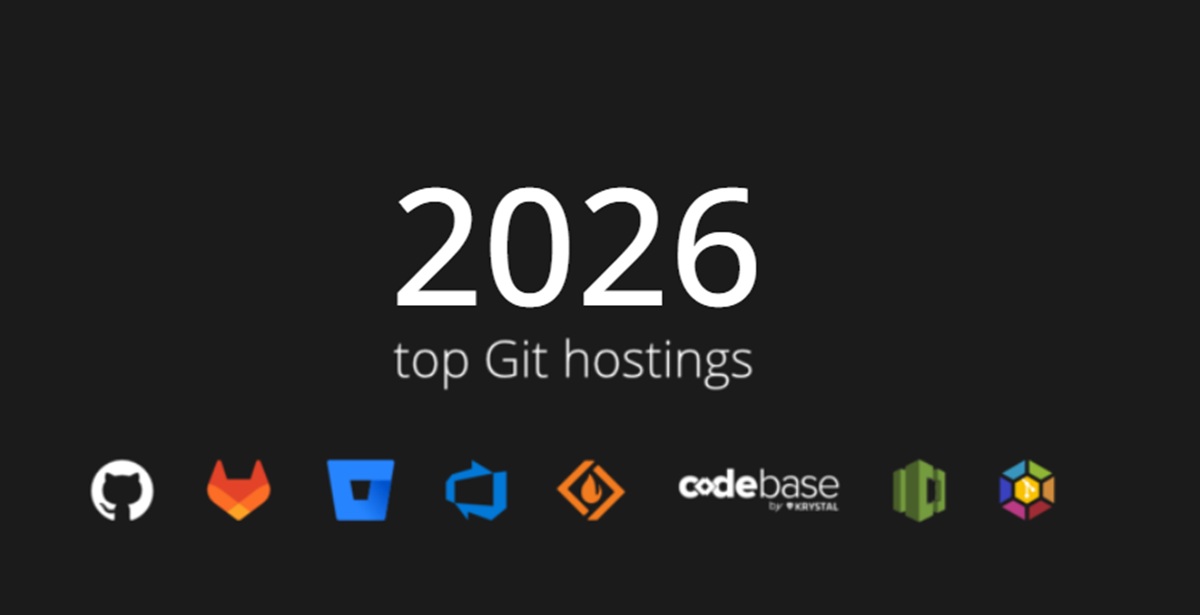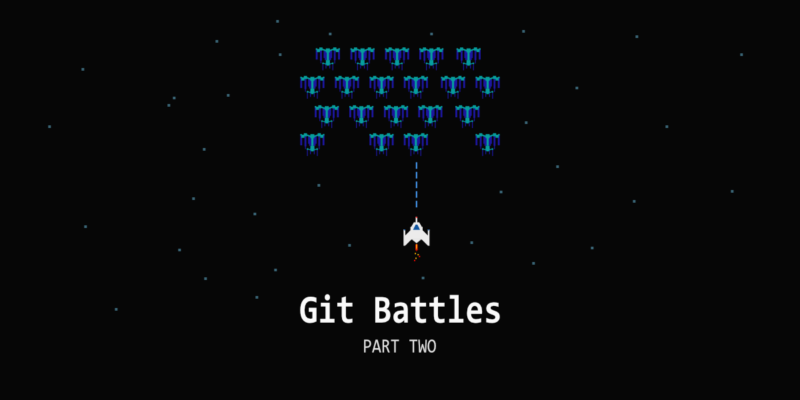
Git Battles Part 2: GitHub vs. GitLab
Choosing a platform to host your repositories might be challenging, and time-consuming. You would need to look for information all around the Internet, check providers’ websites, and do other mundane tasks. We have done the dirty work for you!
In this article, you will find detailed information about two of the most popular code hosting services – GitHub and GitLab. But also a fair, not biased comparison of those two, so you will be able to more confidently choose the service that fits your needs perfectly.
Both GitHub and Gitlab have a lot of strengths to them, so let’s put them to the test, in the most important from a developers standpoint, aspects. It is time for GitHub vs. GitLab! If you want to know how the comparison GitHub vs. Bitbucket worked out check our previous article. Or check our yearly git hosting services comparison – Top Git hosting services for 2025.
What is GitHub
But the first thing we need to do is to introduce our contestants, starting with GitHub!
GitHub is right now the most popular service to host your git repositories, and projects overall, with over 56 million users, and over 190 million repositories, with at least 28 million repositories being public. It is the largest coding community in the world, which has begun growing due to the support for open-source projects on the website.
GitHub’s history started in 2004 and quickly became the leader in hosting Git repositories. In 2018 it was bought by Microsoft. That acquisition was a reason why many developers lately changed their loyalty and hosted their code on other services like GitLab.
GitHub, as we mentioned earlier, is home mainly to Git repositories, as the name may suggest, but it also provides a home for other version control systems like SVN.
Check this out: Visual Studio Code GitHub integration. Learn more about the best way to connect the two of the most loved by software developers tools.
GitHub features include:
- collaborate code review
- integrated issue tracker
- syntax highlighting
- milestones and labels for projects
- support for over 330 languages and data formats
And many many more useful features for developers.
What is GitLab
Now introducing the up and coming competitor – GitLab!
GitLab is a cloud-based DevOps and Git repositories management platform, that allows developers to monitor, test and deploy created code. The main focus of the platform lays in hosting Git repositories, but the service offers a wide range of DevOps features.
GitLab was launched in 2011 and became one of the fastest-growing tech companies in the world in the year 2018. It is trusted by over 30 million users worldwide, and 100 000 organizations, including the biggest players in the tech world. But it doesn’t mean that it doesn’t support creating open-source projects. GitLab also allows developers to create public repositories to share their code with the world.
GitLab features include:
- audit events
- easy import and export of projects
- flexible permissions
- issue trackers
- Integrated CI/CD solution
And many more features to help developers on their projects.
How secure are your repos and metadata? Don’t push luck – secure your code with the first professional GitHub, Bitbucket, and GitLab backup.
Difference between GitHub and GitLab
So we introduced our contestants, and we now know a little bit about those services, we will put them to the test. This will help you decide on which code hosting service to choose. We will analyze aspects important to developers on their day-to-day development cycle, and hopefully, make your decision easier. So it is time for GitHub vs. GitLab!
Costs of service
The first aspect we will analyze is the cost of the service, and what pricing packages will grant you the features you require. And we don’t have to mention that minimizing the cost of running a business is quite an important aspect of running one. So let’s see how GitHub and GitLab look in that department.
GitHub pricing
GitHub provides users with 3 pricing models, differing on features included within. Let’s look at what is offered with the packages.
Free – the package includes all the basic features needed for individual or small teams to work on a project. It allows the creation of unlimited public and private repositories, and as the name suggests this package is free but has many limitations.
Team – the package includes all the features from the Free one, and in addition provides more complex features to improve collaboration within the development team. It costs $4 per user/month.
Enterprise – is the package for the most demanding organizations because this package ensures safety, compliance, and flexible deployment. It includes all features from the Team package, and in addition all the features that your development team might need to work on projects. It costs $21 per user/month.
GitLab pricing
GitLab also provides organizations and users with 3 packages at different prices and provides different features. Let’s take a look at what packages GitLab offers.
Free – this package provides features for individual users, including features helpful in the DevOps lifecycle. This allows users to create unlimited private and public repositories, as in every plan available. And it is free.
Premium – which is the equivalent of GitHub’s Team package. It enhances team productivity and coordination, by introducing more complex features to help teams on projects. It costs $19 per user/month.
Ultimate – is an equivalent of GitHub’s Enterprise package, for most demanding organizations, providing security, compliance, and planning for your company’s projects. It contains a plethora of features that can be used to even further push team collaboration. It includes all features from the Premium package and many many more. It costs $99 per user/month.
Extensions and Third-party Integrations
GitHub and GitLab are leaders in the industry of code hosting services. To earn this place, they need to provide a wide range of tools for developers and integrations with other services like Trello or Jira. Let’s take a look at how our services rank up in the competition of which one provides the best integrations and extensions.
GitHub extensions
GitHub is constantly working on improving its integrations with third-party services, and already has many integrations and extensions established with the most popular services already. Integrations with developers tools providers include but are not limited to:
- Codefresh and Semaphore for continuous integrations
- LogRocket or Waydev for monitoring integrations
- Slack for providing team chats
- GitKraken Glo Boards and DeepAffects for project management
- Atlassian group of products for all kinds of stuff
And many more integrations with useful tools and services that can greatly help developers in their day-to-day work.
GitHub offers a plethora of tools available from a provided marketplace. A big part of the integrations available for GitHub through that platform is GitHub exclusive. There is also a thing called GitHub Actions that is a service that helps you extend functionality and improve automation of your company’s workflow.
But GitHub Actions are not that well established for continuous integrations/deployments (CI/CD), but for that GitHub provides great integration with Jenkins, so if you intend to use Jenkins, GitHub will prove itself to be a great tool.
And since 2018 GitHub has been working with Jira to improve an integration to allow users to easily connect their repositories with Jira Software Cloud. GitHub also allows integration with Trello, allowing to attach pull/push requests to Trello cards, and yet GitHub has its Trello-like service – Projects, but more on that later.
GitLab extensions
GitHub is quite an open platform where without any trouble you can customize it to fit your needs, with many integrations and apps. But GitLab is taking another approach. It tries to create a complete, packed with features platform for developers.
But that doesn’t mean that GitLab doesn’t allow for third-party integrations. It supports integrations with Jira, Microsoft Teams, Slack, Asana, and over 30 more other apps and platforms, for team collaboration and more.
For example, GitLab offers many useful developers features including time tracking, backups, and continuous integration and deployment by default. Let’s focus on the continuous integration and deployment (CI and CD) because where GitHub doesn’t offer that by default, GitLab does have a well-integrated solution for that. It provides tools allowing developers to build, stage and deploy code automatically without human touch.
Friendliness of The Interface, and Ease of Use
A big part of choosing a service is its usability and friendliness from the user’s perspective. Because it is quite obvious that you will use it every day of work, so it would be beneficial to choose a more friendly service or the service that has an interface that fits your needs. But at the end of the day, it is just the choice of preference, because in the case of GitHub vs. GitLab both of those services provide many of the same features.
GitHub usability
GitHub offers a simple interface, and even beginners find it easy to navigate through. For many years it was one of the most user-friendly interfaces. As GitHub is a well-tested open-source platform, and as such on the interface users can find all the features needed to work with Git repositories, and many more. But you need to know that in some cases you need to know how Git works on the command line level.
GitHub offers great ways to collaborate with your team to review code integrated into the interface. GitHub also provides a desktop client, where you will find even more features, to even further improve collaboration within your team.
GitLab usability
GitLab’s target clients are companies and enterprises, and thus the interface is created to fulfill more business-oriented organizational needs. It allows users to utilize all the exclusive features that GitLab provides. And overall GitLab’s interface and ease of use are rated as one of the best in the industry.
Wikis, Documentation, and Collaboration
Creating a hub for information about your project is a great way to allow the flow of information around your company and within your teams. It can greatly improve the quality of work on the given project. Related to that are collaboration features working within services to improve your team’s work. Let’s see how GitHub and GitLab work in that category.
GitHub
GitHub provides several tools that had been proven to work very well to improve collaboration between developers. We can see examples of how great it works on some of the biggest open-source projects like Node.js, TensorFlow, or Visual Studio Code.
GitHub’s workflow allows developers to create even the biggest coding projects very efficiently with the use of pull requests, simple cloning, merging, diffs, repository management, and many many more.
GitHub allows users to create wikis for their projects, which host information and documentation about the code, that you can share with your team, company, or if you work on the open-source project, with the whole community. But there is a problem with creating a private wiki if you only use the free account. If you want to create wikis for your private projects you need to use GitHub’s Enterprise.
GitHub provides a Trello-like tool to create an even more collaborative space for your team. This tool is a built-in Kanban solution, which is available in the Projects tab of your repository. There you can create boards, allowing you to do planning for projects, and create documentation.
GitLab
GitLab allows you to collaborate with your team on the created code. With built-in collaboration and code review tools you can be sure that your team works efficiently on their code. Developers can view and discuss pull or merge requests, make changes, and see an overview of the differences in their code.
GitLab allows you to create a hierarchy between tasks, issues, and assign developers to different branches. In addition, it gives tools to visualize processes that happen during the development of the project.
GitLab workflow works a little differently than GitHub’s. In GitHub, you work mainly on the master branch, and new functionality is merged with feature branches, which is perfect for smaller teams and projects. But when it comes to creating a bigger one, this is where GitLab’s workflow shines. In your project, you create stable branches beyond the master one, like production or pre-production. This means that the master branch is always ready to deploy, and new features are added after testing.
GitLab also allows you to create wiki pages with information about the project, for any repository, whether it is public or private.
Support and Community
The quality of client support from the service provider might be the final push to help you decide on the code hosting service provider. Both GitHub and GitLab at their most expensive packages offer great support. But you can also factor in the support that comes with the community around the website.
GitHub support and Community
GitHub right now (June 2021) is the biggest code hosting service in the world with over 56 million users in over 200 countries around the world. With that comes the most involved coding community on the Internet. Through the years GitHub earned a great reputation in the open-source community. It is practically a standard that if you are working as an open-source developer you need to host your repositories there. But since Microsoft bought GitHub in 2018, many developers left the platform. However, this acquisition helped to convince many enterprise clients to host their projects there.
When it comes to support, GitHub offers 3 types of support depending on which price package you are using. When you use the Free package you can only count on community support (which can be very helpful), and when you use the Team package, you can count on standard support, only when you use the Enterprise package you get premium support.
GitLab support and Community
Even though GitLab has over 30 million users, most of them are companies working on private repositories, and thus it doesn’t have such a developed coding community as GitHub. But it doesn’t mean that there is no community, after all, 30 million developers are using GitLab.
And when it comes to support GitLab also offers different levels of support depending on the package you are working on. You can count on premium support only if you are using the Ultimate version.
GitHub and GitLab Security
Security of your code, repositories, and data is one of the most important factors in the discussion on what service to choose. But in the case of GitHub vs. GitLab, both services offer practically the same level of protection to keep your data secured.
GitHub and GitLab are constantly working on improving the security of their service and as a result, both services are trusted by millions of developers around the world.
As GitHub is now a part of Microsoft, it implements its security measures, which have proven to keep companies’ data safe from threats, and they improve security on almost a day-basis.
Even though GitLab is not a part of a bigger corporation, it is one itself, and as such, it also puts users’ data safety as its number one priority.
When it comes to making users’ accounts safe, both services offer two-factor authentication, to keep unauthorized users from accessing data stored within.
In addition, both services have a bug bounty program, which allows the community to further improve security, by finding bugs, and breaches in layers of protection.
But you need to remember that the responsibility for keeping your repositories’ data safe is always on your side!
GitHub vs. GitLab Winner?
So is there a clear winner in the GitHub vs. GitLab battle?
In our opinion, both of those services will serve you great as a code hosting platform, but of course, the choice is yours. So you need to have in mind your company’s and developers’ needs.






